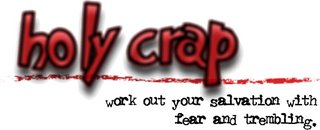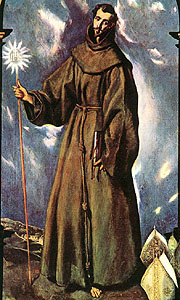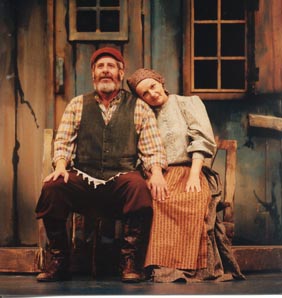
After a long and inexcusable absence, I have the privilege of posting the “tri-weekly” topic. My apologies to all, especially underachiever, for missing out on dozens of good questions and thoughts with the last topic. Here’s hoping I at least beat Tuna to the punch with this post…
I wrestled between 2 topics for our discussion this time around, but after more than a few blank stares and uncertain replies, I’ve left my more ambiguous one for a later date, and have chosen instead, Open Theism. This is by far the one issue from my seminary classes that left me with the greatest uncertainty and possible paradigm-altering ideas. I thought at first this might be too similar to the God’s Guidance discussion from the fall, which took place before I joined HC. However, as I perused the comments, I noticed that the discussion never really took this turn, so I’m going to go ahead with it.
First, a few brief thoughts I found online that can get us thinking about what Open Theism is, from those who support it and those who oppose it:
“Open Theism is a foundational theology that attempts to explain the practical relationship between the free will of man and the sovereignty of God. Based on traditional Arminian theology, Open Theism expounds on the idea of free will.” (wikipedia)
“Open Theism makes the case for a personal God who is able to be influenced through prayer, decisions, and actions of people. Although unknowing of the future, God has predictive (anticipatory) foreknowledge of the future through his intimate knowledge of each individual. As such, he is able to anticipate the future, yet remains fluid to respond and react to prayer and decisions made either contrary or advantageous to His plan or presuppositions.” (wikipedia)
“Open Theism is a theological position that attempts to explain the concept of God’s foreknowledge. The essential question of Open Theism is, “Does God know the future?” For nearly 2000 years of church history, the answer has been almost universally, “Yes.” Open Theists today, however, claim that this view of God’s foreknowledge is based more on philosophy than the actual teaching of Scripture.” (allaboutgod.com)
“Open theism, also known as free will theism and openness, is the teaching that God does not know all things. That is, He does not know the free will choices that people will make in the future because God either chooses not to know or because the future isn't knowable.” (Christian Apologetics & Research Ministry)
Questions for us to talk about: What do you think about Open Theism? Is it Scriptural? Does God know the future? If God knows the future, do we really have free will? Does God change his mind? What implications does our answer have in the area of prayer? Did God risk when he created humanity and does he still risk today? Could we trust the God of Open Theism? Does Open Theism diminish who God is?
I will personally appreciate your thoughts and opinions on this, as I’m still trying to figure out where I land on this issue.








